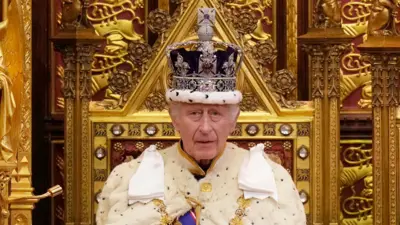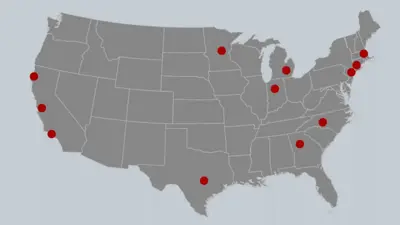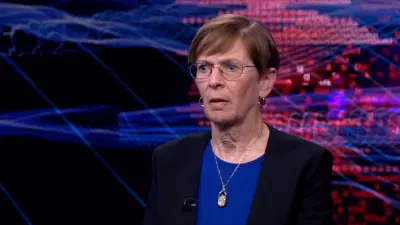We've updated our Privacy and Cookies Policy
We've made some important changes to our Privacy and Cookies Policy and we want you to know what this means for you and your data.
HS2 tunnels under the Chilterns reach halfway point
Image source, HS2
Two of HS2's longest tunnels have reached the halfway point of excavation, the rail company said.
Giant tunnelling machines have been excavating the high speed rail project's route under the Chilterns in Buckinghamshire for the past 18 months.
The machines are half way through the 10-mile tunnel and have excavated enough chalk and flint to fill more than 500 Olympic swimming pools.
Martyn Noak of HS2 Ltd said it was an "important tunnelling milestone".
Image source, HS2
The Chiltern tunnel is the longest on the HS2 project, which is designed to improve links between London, Birmingham and the north of England.
You can view HS2 Ltd's route map here.
The project has faced criticism about the impact it would have on the land the route would take, with campaigners fighting against plans to build on woodland.
The two tunnels, which are between the M25 and South Heath, have five shafts for emergency access and/or ventilation near Chalfont St Peter, Chalfont St Giles, Amersham, Little Missenden and Chesham Road.
The 1.3 million cubic metres of chalk and flint that has been excavated will be used for a chalk grassland restoration project at the south portal of the tunnel.
HS2 Ltd said the project would "see the creation of 127 hectares of new landscaping, wildlife habitat and biodiverse chalk grassland".
Image source, HS2
Mr Noak said: "This tunnel will take HS2 underneath the Chiltern hills, safeguarding the woodlands and wildlife habits above ground as well as significantly reducing disruption to communities during construction and operation.
"Once complete, HS2 will offer low carbon journey options linking London with the major cities of the north and releasing capacity for more freight and local trains on our existing mainlines."
Penny Gaines, chairwoman of campaign group Stop HS2, previously said the project was "based around saving a few minutes on train journeys, but it's far more environmentally friendly not to travel at all".
"We've all seen how much business can be done through video-conferencing and other technologies," she said.
Find BBC News: East of England on Facebook, Instagram and Twitter. If you have a story suggestion email eastofenglandnews@bbc.co.uk
Top Stories
Features & Analysis
Most read
Content is not available








